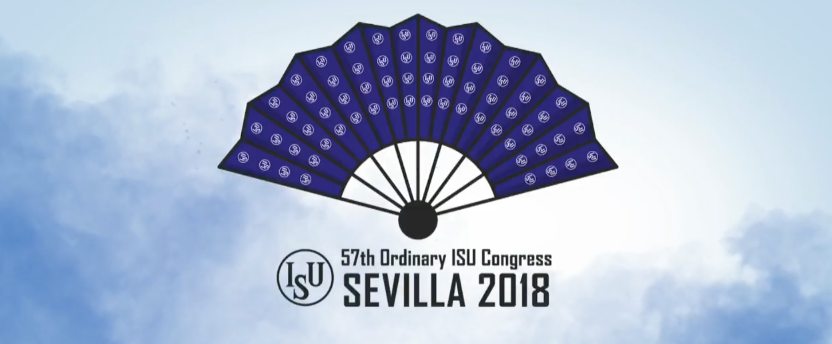Feckless ISU members vote to keep allowing indefensible judging conflict of interest in figure skating
/This is all you have to know about the International Skating Union’s commitment to integrity in judging of figure skating.
The ISU members voted Monday morning at their biennial Congress to continue allowing an unconscionable conflict of interest in the sport without even any discussion on the matter.
Thanks to a move from Skate Canada, whose president’s ethical equivocation created the need for action, the feckless ISU members removed from the Congress agenda an urgent proposal preventing federation presidents from judging major international events.
ISU rules make it easy to quash urgent proposals, since a four-fifths majority is needed to keep them on the agenda. The vote on Skate Canada chief executive Debra Armstrong’s shameless motion to quash consideration of this proposal was 66 for, 33 against and 16 abstentions and failures to vote. The yes votes were well short of the 93 needed to retain it on the agenda.
The vote to keep conflict of interest proposal from agenda. 4/5 "yes" majority was needed.
Both the U.S. speed and figure skating federations voted to keep the conflict-of-interest proposal on the agenda. (Figure skating and speed skating members voted because it was a general matter related to approval of the agenda.) The figure and speed skating federations of Russia and Canada were among those who voted to kill it.
The urgent proposal, made by the ISU’s governing council. would have stopped national figure federation presidents (and the senior-most figure skating official in countries where one federation governs both figure and speed skating) from doing what Skate Canada President Leanna Caron unreservedly did last season: be an ice dance judge in the team event ice dance and the ice dance events at the Olympics as well as be an ice dance and men’s singles judge for junior and senior events at the Grand Prix Final.
The proposal called for barring anyone serving as the leading figure skating official of a national federation from being a judge, referee, technical controller, technical specialist, data operator, replay operator or member of an officials’ assessment committee (OAC) at major international events: the Olympics, World Championships, European Championships, Four Continents Championships, Grand Prix Final and World Team Trophy.
That would cover not only Caron but also Anne Cammett, a singles / pairs referee last season who was elected this month as U.S. Figure Skating president.
(For more on this issue, please go to the column I wrote last week.)
Another urgent proposal, this one from the Netherlands on raising the senior-level minimum age in figure skating from 15 to 17, also was summarily booted from the agenda after a motion made by Israel Ice Skating Federation President Boris Chait, probably acting as a surrogate for Russia.
The vote on that was 63 for, 39 against and 16 abstentions.
The country-by-country votes on Chait’s motion were shown on the live stream of the ISU Congress from Seville, Spain. The United States, Germany, Finland, Italy, Sweden and Ukraine were among the nations voting to keep the proposal on the agenda. Russia and Japan voted no.
Before the votes on both, ISU Director General Fredi Schmid had told the members, “The ISU Council so far has always supported to include all urgent matters to be on the agenda. This was proposed by the (ISU) president.”
So much for that.
The age limit issue has provoked lively debate and is likely to be further discussed in the next couple years by ISU figure skating technical committees. It could come before the 2020 Congress as a regular agenda item. That would mean if a change is approved then, it would not take effect for the 2022 Winter Olympics.
The fate of any future conflict-of-interest proposals will depend on having ISU members put ethics and the general good before self-interest. Good luck with that.
(An earlier version of this story mistakenly identified the Skate Canada president as Leslie Caron. She is Leanna Caron.)



